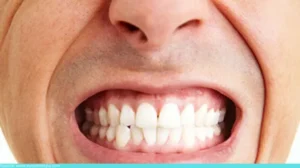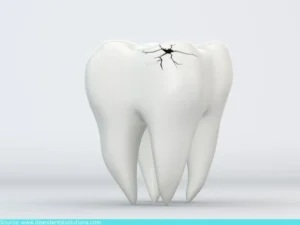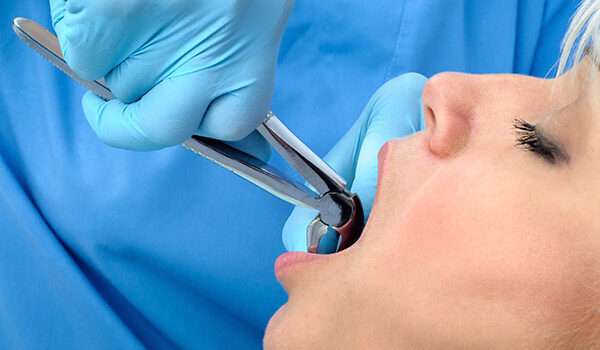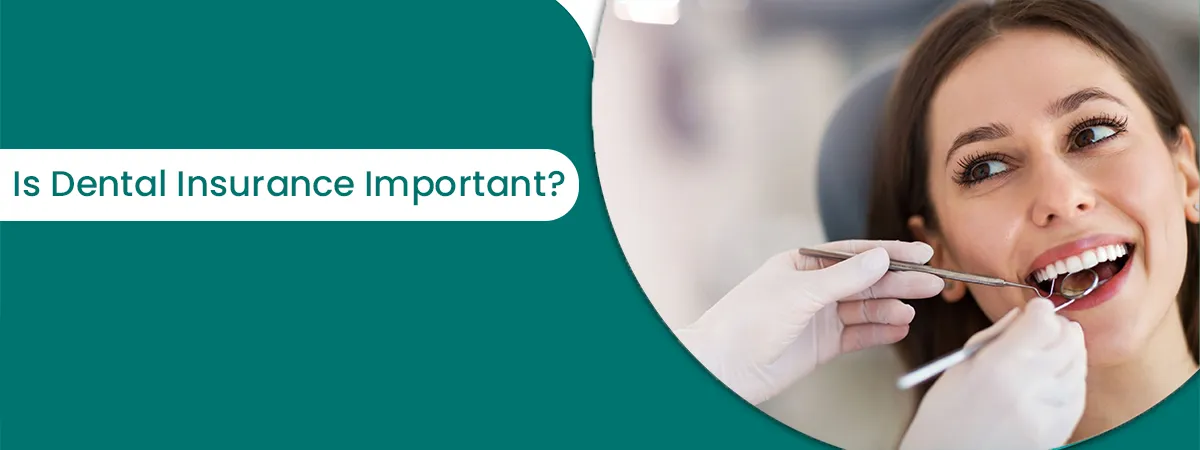A dentist or other health care provider most often diagnoses bruxism during a routine checkup. For example, the dentist may notice abnormal wear on your teeth, which can be a sign of bruxism. Your dentist may also ask you about any symptoms you have been experiencing.

Dr. Suhrab Singh, Head of Neo Dental Care – a state-of-the-art dental clinic in Noida, says that most people do not even realize they are gnashing or grinding their teeth until a loved one points it out to them. And the ones who realize do so when more severe symptoms, such as jaw ache, headaches, and worn-out, sensitive teeth, start to appear.
Approximately 33% of individuals experience this jaw-clenching and teeth-grinding habit throughout the day, while more than 10% do it when they are asleep.
You may suffer from bruxism if you catch yourself grinding, or gnashing your teeth, or clenching your jaw, in your waking hours, or if you wake up with a headache, sensitive teeth, or a sore jaw. Do not ignore this condition.
Please visit Neo Dental Care, often called the best dental clinic in Noida, for safe and effective treatment.
What causes bruxism?
Doctors may not always understand the causes of grinding your teeth. For example, kids diagnosed with hyperactivity disorders or medical conditions like cerebral palsy are more likely to grind their teeth. In addition, some medications may potentially contribute to it.
Some young children grind their teeth because their teeth are misaligned. Daily stress may be the cause of this condition in older kids or adults.
Stress
According to estimates, anxiety or stress is the cause of up to 70% of bruxism that affects people subconsciously while they sleep. Additionally, increasing work expectations or challenging life circumstances might contribute to stress and anxiety.
Besides, several medicines used to treat anxiety and depression might cause bruxism.
Lifestyle factors
Bruxism may frequently affect people who consume:
- tobacco
- alcohol
- recreational drugs, like cocaine and ecstasy
- some medications, like antidepressants and antipsychotics
Imperfect bite
An abnormal bite (malocclusion) may be connected to bruxism. Dr. Suhrab Singh, often regarded as the best dentist in Noida, explains that an abnormal bite is when the top and bottom teeth meet improperly or do not meet at all. You may also grind your teeth as a result of crooked or missing teeth.
A dentist can usually recognize an abnormal bite in a person, but fixing the issue does not always eliminate the symptoms.
The presence or absence of symptoms might be caused by a variety of factors, including:
- how much stress you are under
- the intensity of the grinding or clenching
- how often it occurs, and how long each occurrence lasts
- your capacity for relaxation
- your patterns of sleep
- if your teeth are crooked or misaligned
What are the symptoms of bruxism?
Figuring out if you clench or grind your teeth can be challenging because, while you could experience some symptoms as soon as you wake up, they can quickly subside before you take notice. If you grind your teeth when you are awake, you will not feel the symptoms until later in the day.
Here are some of the signs you should look out for:
- chipped, loose, or broken teeth
- an earache, aching jaws, or a dull headache
- teeth pain, tightness in your temples and face, especially right after waking up
- a sore jaw while eating, especially your first meal of the day
- sensitivity to hot and cold foods and beverages
- clenching your jaw intensely
Even if you are unsure that your symptoms are caused by teeth grinding, it is essential to let your dentist know as soon as you notice a problem so they can diagnose and come up with potential solutions.
How is bruxism diagnosed?
A dentist or other health care provider most often diagnoses bruxism during a routine checkup. For example, the dentist may notice abnormal wear on your teeth, which can be a sign of bruxism. Your dentist may also ask you about any symptoms you have been experiencing.
Your dentist can typically determine whether you grind your teeth now or in the past through a physical examination. Your doctor will see signs of worn enamel and teeth. If you experience oral or facial pain and soreness while chewing, medical practitioners frequently diagnose teeth grinding as the cause of the pain. Another possible source of your symptoms, like ear infections, can be ruled out by an examination.
Should you be worried if you have bruxism?

Prolonged teeth grinding can occasionally cause teeth to break, become loose, or even fall out. In addition, the constant grinding could eventually leave teeth as stumps. Bridges, implants, root canals, crowns, partial dentures, or even complete dentures may be required when these things happen.
Not only may excessive grinding wear down your teeth and cause tooth loss, but it can also impact your jaws, increase TMD (Temporomandibular disorders) / TMJ (temporomandibular joint), and even alter the way your face looks.
How is bruxism treated?
There is no single bruxism cure that works for everyone. However, various treatment options are available for people who grind their teeth.
Because grinding occurs primarily at night while sleeping, a sleep study is advised to rule out an airway problem. If a compromised airway is a significant factor, treating the airway first may help to stop the teeth grinding.
Treatment for bruxism may include
- Occlusal splints or mouth guards
- Medications like muscle relaxers
- Dental procedures
- Behavioral therapies where your stress triggers are identified and addressed through stress management and training
- Dietary changes
- Botox injections to paralyze jaw muscles involved in grinding
Conclusion
There is no single answer to how to stop bruxism, as the cause of the condition is not fully understood and may differ for each individual. Although stress and worry can trigger teeth grinding, it usually happens when you are asleep and is more likely brought on by missing or misaligned teeth or an abnormal bite. A sleep disorder like sleep apnea may also be the culprit.
However, some treatments can help reduce or prevent bruxism symptoms. These include stress-management techniques, mouth guards or splints, and Botox injections. In severe cases, your dentist may recommend surgery.
The best way to deal with bruxism is to prevent it from happening in the first place. You can do this by avoiding risk factors such as stress, fatigue, and alcohol consumption. However, if bruxism does occur, it is important to seek treatment as soon as possible to prevent further damage to your teeth and gums.
If you or a loved one has this condition and seek treatment in Noida, please visit the top-notch orthodontist, Dr. Suhrab Singh. With over 10 years of expertise in all dental treatment, he is well-known for providing reliable and effective treatment options.






